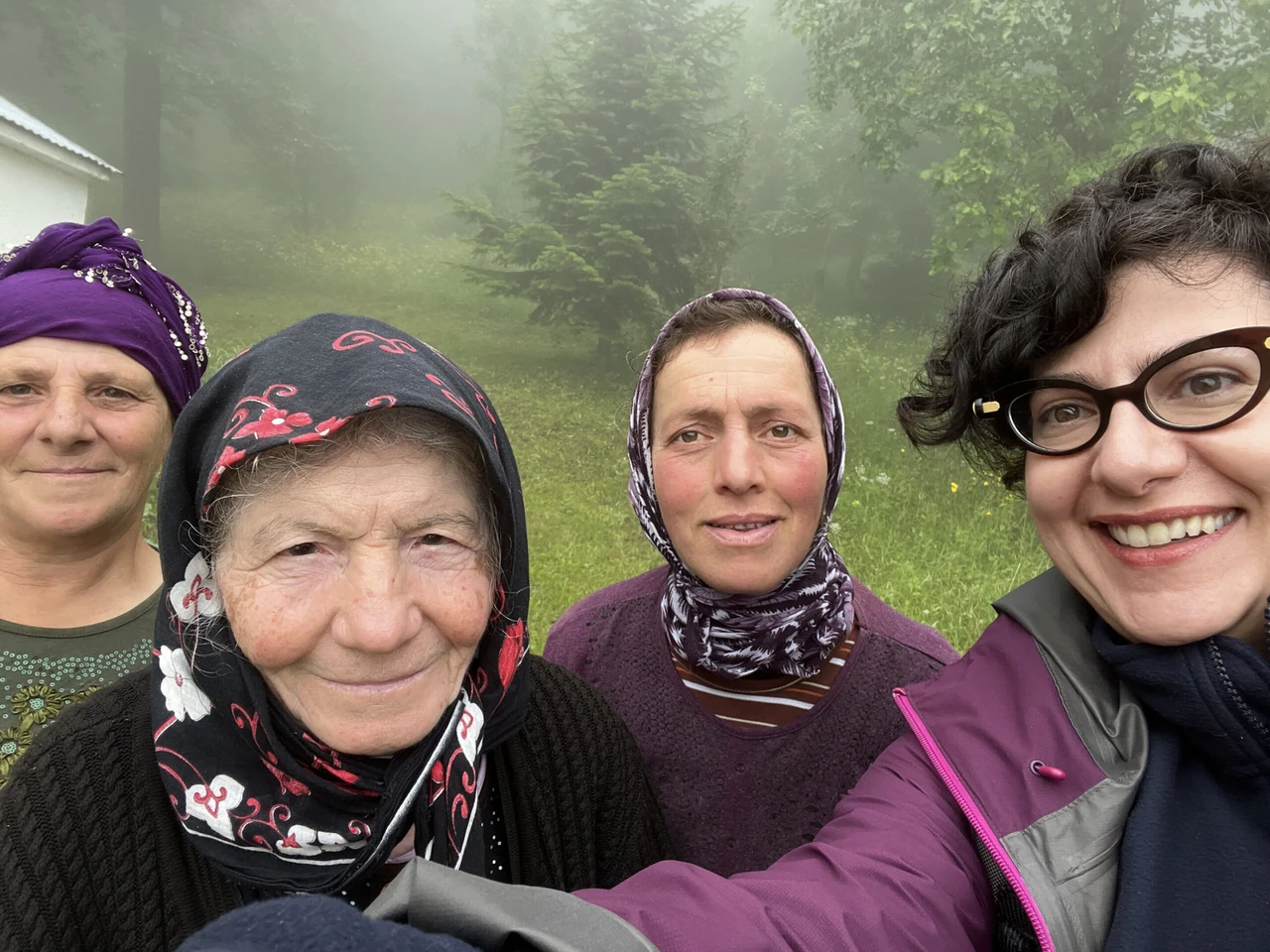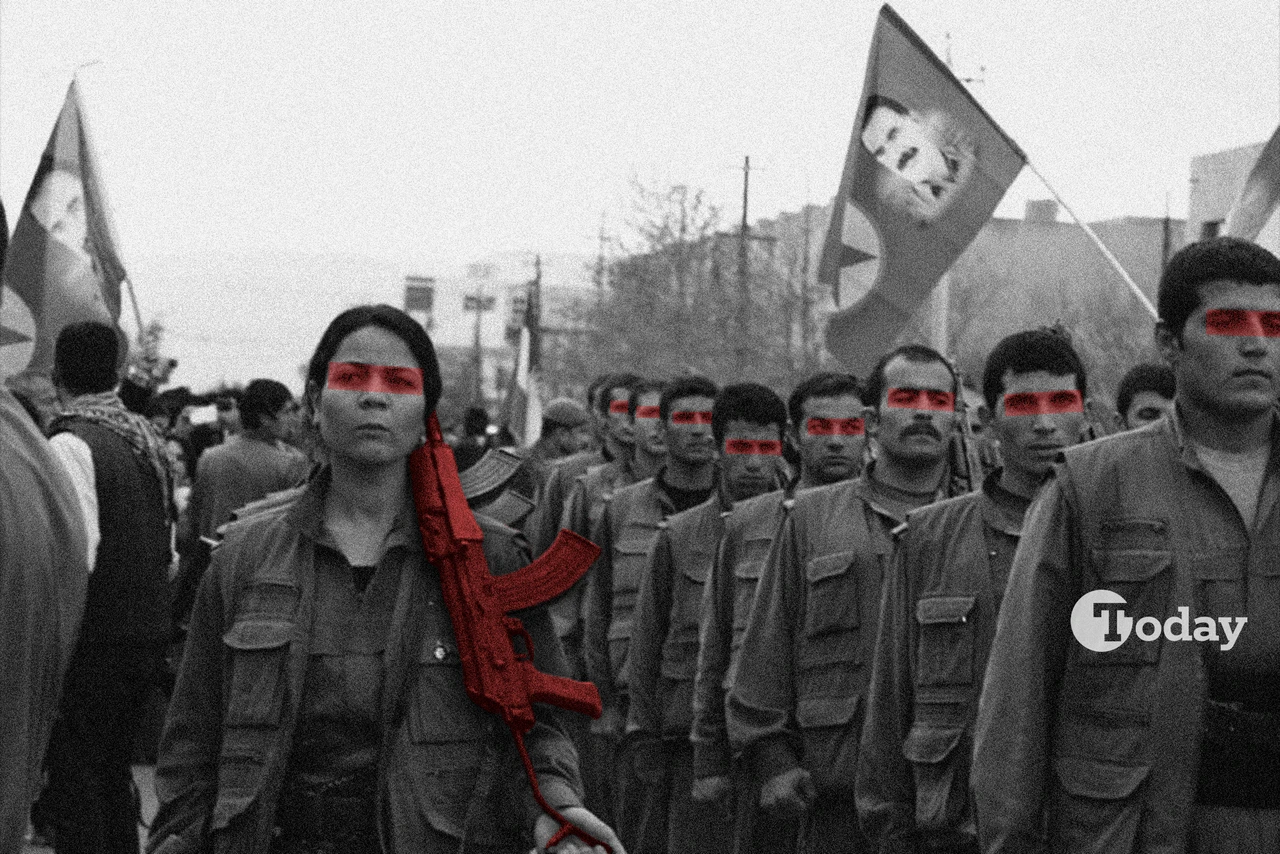Efforts underway to preserve rare Greek dialect spoken in Türkiye
 Professor Ioanna Sitaridou (right) with a 100 years-old Romeyka speaker, in Trabzon, Türkiye (Photo by Professor Ioanna Sitaridou)
Professor Ioanna Sitaridou (right) with a 100 years-old Romeyka speaker, in Trabzon, Türkiye (Photo by Professor Ioanna Sitaridou)
A unique piece of history spoken by a dwindling community – a millennia-old Greek dialect called Romeyka is facing extinction in Türkiye’s Trabzon region.
Experts consider Romeyka a linguistic gem, with roots in Hellenistic Greek, that offers a direct link to the ancient world. Unlike modern Greek dialects, Romeyka retains features from ancient Greek, including the infinitive form.
With only a few thousand speakers remaining, urgent efforts are needed to document and preserve this irreplaceable language before it vanishes forever.
How is Romeyka being preserved?
Professor Ioanna Sitaridou from Cambridge University has launched a new crowdsourcing platform to preserve Romeyka. This initiative aligns with the U.N.’s International Decade of Indigenous Languages (2022–32), aiming to draw attention to the critical status of many indigenous languages and mobilize resources for their preservation.
The platform invites people worldwide to upload audio recordings of Romeyka, creating a repository of spoken data.
This effort not only aids in documenting the language but also encourages speakers to appreciate their linguistic heritage.
The project was developed by Harvard undergraduate Matthew Nazari, himself a heritage speaker of Aramaic.
Key findings about Romeyka
Sitaridou’s extensive research over the past 16 years has yielded significant insights into Romeyka’s development and grammar. A major finding is that Romeyka descends from Hellenistic Greek rather than Medieval Greek, distinguishing it from other modern Greek dialects.
This challenges the notion that modern Greek is an isolated language, suggesting instead that Romeyka is its sister language.
One remarkable feature of Romeyka is its retention of the ancient Greek infinitive form, which has disappeared from all other known Greek dialects.
This preservation provides invaluable insights into the evolution of the Greek language.
How did Greek language spread in Black Sea region?
The Greek presence in the Black Sea region dates back to the sixth century B.C., with significant contributions from colonizers. Over time, the Greek language spread through the establishment of colonies and the Christianization of the region.
In the fourth century B.C., Alexander the Great’s military campaigns played a role in establishing a Greek-speaking center south of Pontus, in Cappadocia. It’s plausible that Greek also spread northward from Cappadocia toward Pontus.
However, the pivotal period for the spread of the Greek language appears to have been during Christianization. The people of Pontus were among the early converts mentioned in the New Testament. The Soumela Monastery, founded in 386 A.D., emerged about two decades after the region officially embraced Christianity.
Despite the conquest and subsequent Islamization of Trabzon by the Ottomans in 1461, some communities retained Romeyka.
Sitaridou’s recent fieldwork in Tonya, an area previously unexplored by researchers, has uncovered significant grammatical variations within Romeyka, indicating different historical developments due to varying degrees of Islamization.
The Ottoman Empire generally showed tolerance toward languages of different ethnic and religious groups, supporting their use. Despite Islamization, Greek-speaking communities in the Trabzon region managed to preserve some of their language and cultural features. This tolerant policy contributed to the continuity of languages like Romeyka.
Why is preserving heritage languages important?
Preserving languages like Romeyka is crucial for cultural identity and social cohesion. In Greece, Romeyka is sometimes viewed as a corrupted form of Greek.
Elevating the status of such languages strengthens community identity and connection.
Sitaridou’s work extends beyond Romeyka. She also focuses on documenting Sri Lanka Portuguese, a critically endangered language among Afro-descendant communities in Sri Lanka. These efforts underscore the global importance of language diversity.



